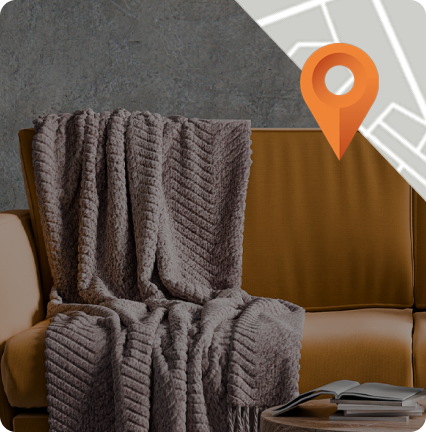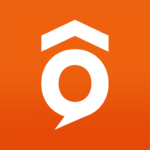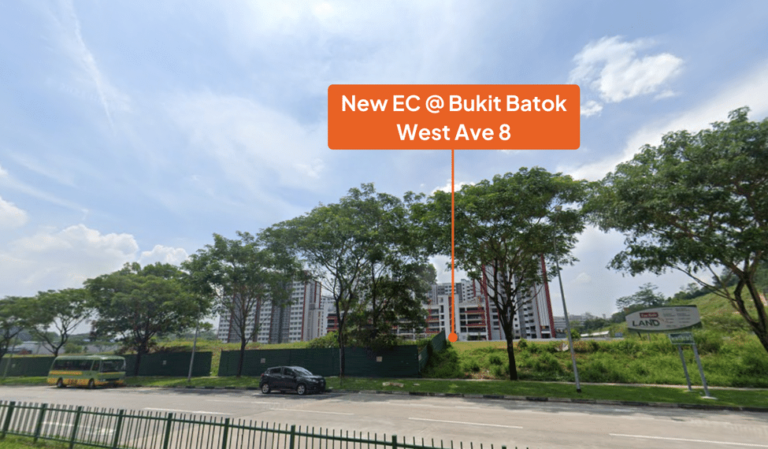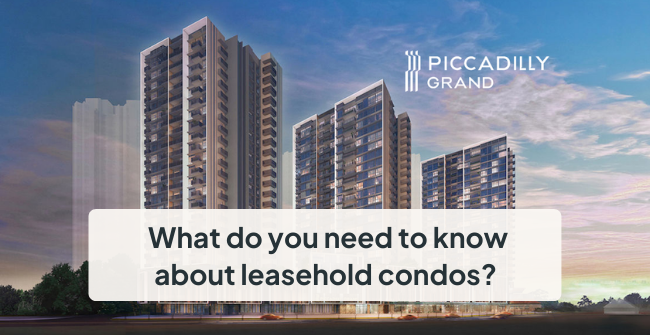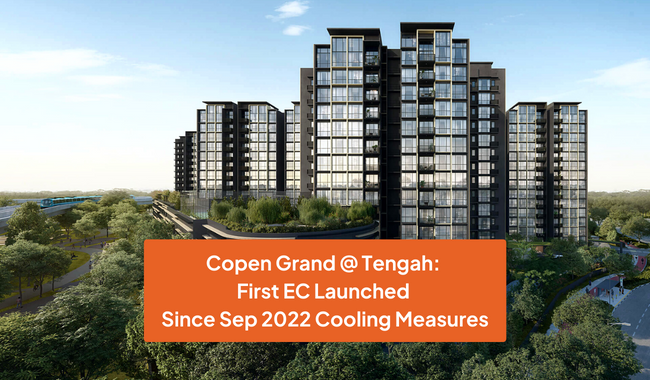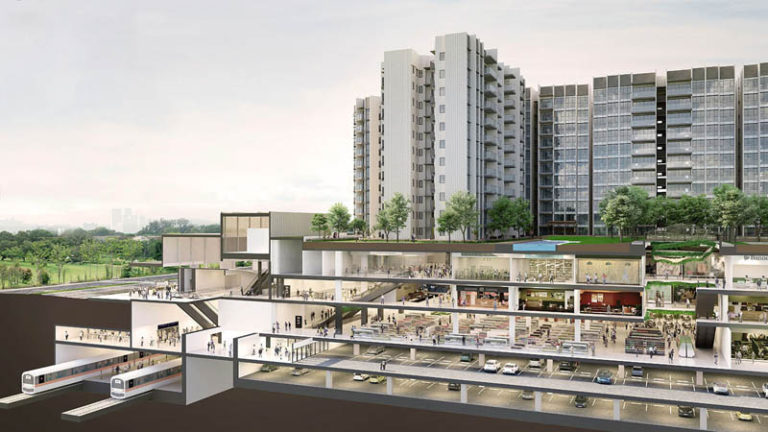If you’re planning on buying a home, securing the right loan is one of the most important steps you’ll take. But how do you choose? What are the factors to consider between a loan from the Housing Development Board (HDB) and one from the bank?
We’ll work you through the pros and cons of getting either an HDB loan or a bank loan, so you can evaluate which is better for you.
But first, you need the Housing Loan Eligibility (HLE) letter to get that HDB loan.
HDB loan eligibility criteria
Check that you satisfy the following conditions:
- At least one buyer for the HDB is a Singapore citizen.
- Have not taken two or more housing loans from HDB previously.
- Average gross monthly household income is less than $14,000.
- Average gross monthly household income is less than $7,000 for singles buying 5-room or smaller resale flat or 2-room new flat in a non-mature estate.
- Must not own or have disposed of any private residential property in the past 30 months before the date of application for an HDB Loan Eligibility (HLE) letter.
Once you obtain that HLE, an HDB loan is easily secured thereafter, and you get quickly apply for Option to Purchase.
If you do not meet the conditions mentioned above, you can still opt for a bank loan. The eligibility for a bank loan is relatively simple; having a good credit score is good enough.
HDB loan or bank loan: Which one should you choose?
Getting an HDB loan or a bank loan has distinct differences. Below are some of the key differences you should take note of when deciding between the two:
| HDB Loan | Bank Loan | |
|---|---|---|
| Interest Rate | 2.6% (0.1% above the Central Provident Fund Ordinary Account interest rate) | About 1.3% – 2.4% (Dependent on bank. Floating interest rates may also fluctuate) |
| Downpayment | 10% in cash or CPF | 20% in cash (min. of 5%) and via CPF OA |
| Maximum Loan | New flats: 85% of the purchase price Resale flats: 85% of the resale price or market valuation, whichever is lower Monthly loan installment must be within 30% of income (Mortgage Servicing Ratio) | 75% of the purchase price Total Debt Servicing Ratio must be within 55% of income |
| Minimum Loan | None | ~S$100,000 |
| Late Payment Penalty | Currently 7.5% per annum | Depends on banks, usually higher than HDB |
| Eligibility | Income + citizenship requirements | No other requirements other than a decent credit score |
Pros of getting an HDB Loan over a bank loan
Generally, the HDB loan is a more popular financing option, especially for young couples and working adults. Here’s why:

1. No early repayment penalty for HDB loan
One of the key attractions of getting an HDB loan is its flexible repayment period. If you take on an HDB loan, you will not be penalised if you choose to repay your loan early.
On the other hand, some banks do not allow you to pay off your loan early. You may even end up incurring an early repayment penalty if you do so. For example, a bank loan might have a locking period of 2-3 years and penalty amount of 1.5%, but this depends on the bank and the type of home loan package selected.
Furthermore, should you choose to repay your HDB loan earlier, you will not be required to pay the remaining outstanding interest committed initially to the HDB. The interest you have to pay will be based on your remaining HDB loan balance.
2. Those taking an HDB loan can choose to switch to a bank loan
For those who are thinking of securing an HDB loan, you have the option to refinance and take up a bank loan instead. Since there is no lock-in period for HDB loans, borrowers can freely decide to switch to a bank loan at any time, without incurring a penalty.
However, if you opt for a bank loan, you cannot change to an HDB loan during the mortgage period. This means, when you secure an HDB loan, you can enjoy more flexibility when it comes to early repayments, and the option to switch to a bank loan.
3. HDB loan has a lower initial downpayment
Another reason why people choose an HDB loan over a bank loan is the lower initial downpayment. The downpayment for HDB loans is 15% of the purchase price, while banks’ downpayment is 25%.
For example, if you’re buying a $400,000 flat with an HDB loan, you will need to pay $60,000 in downpayment in cash (min 5%) and CPF OA savings.
But if you’re taking a bank loan, you may have to fork up $100,000 for the downpayment, of which $20,000 has to be paid in cash. Especially for couples who’ve just started their professional careers, the latter may seem relatively unaffordable.
Furthermore, HDB loans also include a Staggered Downpayment Scheme. This means that you can pay your downpayment in two parts: the first 5% will be paid during the signing agreement for lease, while the other 5% will be paid during the key collection. For bank loans, this would be split into 10% during the first downpayment, and 15% during key collection.
| HDB Loan | Bank Loan | |
|---|---|---|
| Maximum loan granted | 85% | 75% |
| One-time downpayment (during signing of Agreement for Lease) | 10% (CPF OA and/or cash) | 5% (Cash) 15% (CPF OA or cash) |
| 1st Staggered Downpayment (during signing of Agreement for Lease) | 5% (CPF OA and/or cash) | 5% (Cash) 5% (CPF OA or cash) |
| 2nd Staggered Downpayment (during keys collection) | 5% (CPF OA and/or cash) | 15% (CPF OA or cash) |
Source: HDB Website
Pros of getting a bank loan over an HDB loan

Of course, there are also drawbacks when it comes to getting an HDB loan. Here are some reasons why you should opt for a bank loan instead.
1. Lower interest rates
One of the most significant downsides to getting an HDB Loan would be the high interest rate. At an interest rate of 2.6%, you will potentially be paying more for your flat than intended. For example, if you have a $400,000 mortgage loan from HDB for over 25 years, you will be paying $1,815 monthly for your flat. Over 25 years, this amounts to $544,500, which means you will be paying about $144,500 in interest for your flat.
Conversely, if you decide to take a bank loan at an interest rate of 1.5%, you will be paying $1,600 a month for your flat. Over 25 years, you will be paying $480,000 for your flat. By choosing a bank loan over an HDB loan, you will be saving about $64,500 in interest over 25 years.
However, do note that most bank loans are pegged to a floating interest rate, so you may not be paying a constant interest rate throughout your loan tenure.
2. Easier eligibility requirements
As mentioned above, you may have to go through multiple hoops to be eligible for an HDB loan. So for foreigners or couples earning a higher income, a bank loan may be your best bet as eligibility requirements are much more flexible.
With a clearer picture of what HDB and Bank Loans entail, you can now decide which financing option is best for your needs!
Looking for an HDB or private property?
Here’s how you can speed up your home search
Let Ohmyhome’s smart data-matching technology MATCH you with the right home, according to your specific needs. Submit your preferences to us and our algorithm will filter all our available listings based on those, and we’ll WhatsApp them to you once we find a match. We’ll also send you relevant content that you can use for your research and inform your home buying decision, so you no longer have to spend hours searching online for the information that you need.
You can also call us at 6886 9009 to secure an appointment with any of our Super Agents or message us in the chatbox at the bottom, right-hand corner of the screen. You can also WhatsApp us at 9727 5270!
This article was originally published on Planner Bee, your handy financial planning app! Learn more about managing your money, investments and insurance on Planner Bee’s blog.





